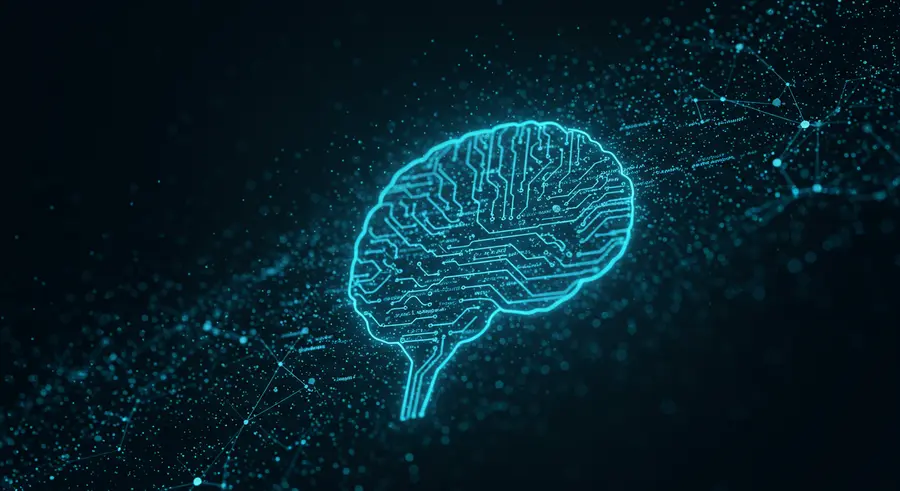Appearance

Welcome, fellow innovators and developers! 👋 Today, we're diving deep into a topic that's not just a trend but a transformative force reshaping the very fabric of how we build software: Artificial Intelligence in Software Development.
For years, AI has been a fascinating concept, but now, it's matured into a powerful co-pilot, an intelligent assistant, and even a proactive problem-solver in our daily coding lives. Gone are the days when AI was confined to research labs; it's now an indispensable tool in the modern developer's toolkit.
Why the Buzz Around AI in Software Development? 🤔
The software development landscape is constantly evolving, demanding faster delivery, higher quality, and more complex solutions. This is where AI steps in, offering capabilities that human developers alone would struggle to achieve at scale.
AI isn't here to replace developers; it's here to empower us, making our work more efficient, accurate, and even enjoyable. Think of it as having a highly intelligent, tireless assistant that can analyze vast amounts of data, learn from patterns, and even anticipate our needs.
Practical Applications: Where AI Shines in SDLC ✨
Let's explore some of the most impactful ways AI is being integrated into the Software Development Life Cycle (SDLC):
1. AI-Powered Code Generation and Autocompletion ✍️
Tools like GitHub Copilot and other AI-driven assistants are revolutionizing how we write code. They learn from billions of lines of public code, suggesting entire functions, snippets, and even refactoring ideas in real-time.
- Example: Imagine you're writing a Python function to process user input. As you type
def process_user_, the AI suggests the rest of the function, including parameters, docstrings, and even common error handling, based on context and best practices. This dramatically speeds up development and reduces boilerplate.
2. Automated Testing and Quality Assurance 🧪
Testing is often a time-consuming but critical phase. AI can automate various aspects of testing, from generating test cases to identifying vulnerabilities and predicting potential failures.
- Example: AI can analyze your code changes and automatically generate unit tests that cover edge cases you might have missed. It can also detect subtle bugs by observing application behavior under various conditions, performing visual regression testing, and even prioritizing which tests to run based on the risk of changes.
3. Intelligent Debugging and Error Detection 🐛
Finding and fixing bugs can be a developer's nightmare. AI can analyze error logs, identify root causes, and even suggest solutions, significantly reducing debugging time.
- Example: An AI-powered debugger can analyze crash reports, pinpoint the exact line of code causing an issue, and suggest common fixes or even provide links to similar issues resolved in other projects. It can also identify potential memory leaks or performance bottlenecks before they become critical.
4. Code Refactoring and Optimization ♻️
AI can analyze code for efficiency, readability, and adherence to coding standards, suggesting improvements and even automating refactoring processes.
- Example: An AI tool can scan your codebase and recommend how to simplify complex conditional statements, optimize database queries, or improve the overall architecture for better performance and maintainability.
5. Enhanced Security and Vulnerability Detection 🔐
With the increasing complexity of software, security is paramount. AI can play a crucial role in identifying security vulnerabilities and recommending countermeasures.
- Example: AI-powered security scanners can analyze code for common vulnerabilities like SQL injection, cross-site scripting (XSS), and insecure API endpoints, often identifying them faster and more accurately than traditional static analysis tools.
6. Smart Documentation and Knowledge Management 📚
Generating and maintaining up-to-date documentation is often an overlooked aspect of software development. AI can assist in automating this process.
- Example: AI can automatically generate API documentation from code comments, create user manuals based on application features, or even answer developer queries about the codebase by intelligently searching through existing documentation and code.
The Future is Collaborative 🤝
The integration of AI into software development is not about replacing human creativity or problem-solving skills. Instead, it's about augmenting them. Developers can offload repetitive, mundane tasks to AI, freeing up their time and mental energy for more complex design challenges, innovative solutions, and strategic thinking.
This symbiotic relationship between human and AI will lead to:
- Faster Development Cycles: AI accelerates coding, testing, and debugging.
- Higher Code Quality: AI helps catch errors and suggests best practices.
- Reduced Costs: Automation leads to fewer resources spent on repetitive tasks.
- Increased Innovation: Developers can focus on novel solutions rather than boilerplate.
- More Accessible Development: AI can lower the barrier to entry for new developers.
Explore More on TechLinkHub.xyz!
For more insights into cutting-edge software engineering concepts and to discover tools and resources that can help you harness the power of AI in your projects, be sure to visit our comprehensive catalogue, especially the Software Engineering section.
We're just at the beginning of this exciting journey. The future of software development with AI promises to be more productive, more secure, and infinitely more innovative. Let's embrace this revolution together! 🚀
Stay curious, stay coding! ✨